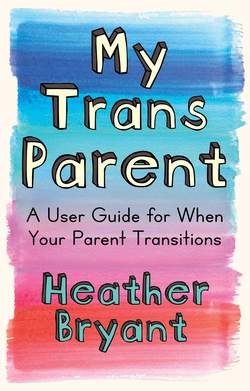Читать книгу My Trans Parent - Heather Bryant - Страница 46
На сайте Литреса книга снята с продажи.
“COMING OUT” ON SOCIAL MEDIA
ОглавлениеSocial media also impacts the ways we, and our family members, come “out” (or not). How can we avoid outing a parent who is not yet out? What do we do when we have friends or followers who have differing beliefs about trans people or issues? How do we handle trolls, misinformation, and people who are just plain mean?
My trans parent avoids social media, but there are times when I want to share about my experience. Some people, even friends, still don’t know my whole story, so what do I do? Safe spaces like COLAGE’s Facebook page and the COLAGE People with Trans Parents (PTP) community on Facebook give me a chance to share more openly.
Still, social media remains a key territory for people with trans parents to navigate safely.
“I think social media’s a big part of this now,” Becca said, “because that’s where everyone gets their news, their information, how they learn about new things.” At first, she jumped into arguments and debates. “I always used to fight with people and comment back but then I realized there’s no need, there’s no point. I’d rather put my energy into educating people than fighting with people.” She posts articles that educate, and ignores the responses for the most part.
Charlie Craggs, an author and activist for trans rights and education, has this recommendation for navigating social media: “Social media is rife with transphobia, but so is real life. So I just navigate social media the same way I do real life and I just ignore the haters.” It may sound easier said than done, but try focusing on the communities that support you and your family. In the long run, those are the ones that matter the most.
SOCIAL MEDIA CHEAT SHEET
Andrea D. Kelley, Ph.D.
Andrea Kelley is a lecturer of sociology of health and medicine at the University of Michigan, Ann Arbor. Her research focus is on gender, sexualities, and health, with a specific focus on people with transgender parents.
Social media can be an important gathering place for learning and sharing information! This cheat sheet will offer some suggestions for navigating social media.
When reading others’ posts and gathering information:
• You can learn more about transgender people and families by following trans activists and organizations that support trans people and rights. For starters, try searching online for “transgender activist.” Some organizations to consider following are:
– COLAGE
– National Center for Transgender Equality
– Transgender Legal Defense & Education Fund
– GLAAD
• There are a lot of people out there posting negative or harmful things about transgender people. Sometimes they call themselves gender-critical feminists, and they may be referred to as TERFs (trans-exclusionary radical feminists) by trans activists.
• Some people just post harmful things about trans people for various other reasons (ignorance, transphobia, etc.), and it can be upsetting to read. It is always your choice whether to engage.
When creating your own posts:
• Follow your parent’s lead if you post about them, whether or not they are also on social media! Talk to them about their name and pronouns, talk to them before posting old photos or tagging them in posts.
• If you are going to post broadly about trans rights and issues, read work written by trans activists and organizations. They are doing fantastic work, and so much of it is available online. Link to them!
• If you are not trans yourself, be open to trans people’s suggestions or criticisms about what you post
Things to keep in mind:
• There are safe spaces where you can ask questions and be supported. Check out COLAGE’s website to join the Facebook group for people with trans parents. It’s secret, meaning nobody else can see what you post or even that you’re a member!
• Take care of yourself, even if that means unfollowing, muting, or unfriending people whose posts or opinions are upsetting to you.
• The trans community is incredibly diverse in terms of background, identity, and gender expression—and so are their families!
Some general safety tips to remember, adapted from the Social Media Cybersecurity tip sheet available at cisa.gov:
• Think! Before you post, consider that you may not be able to erase it completely. Once it’s up, someone probably saw it.
• Connect! Consider who you connect with and try to link up with those you trust.
• Protect! Stay safe and protect your information and yourself. Don’t share your own location or your parent’s.
• Speak up! If someone posts something you find offensive or harasses you online, tell someone about it and take action to protect yourself.
Prompts for Coming Out or Not
1. Is your family out in the community?
2. Have you shared about your family with friends? If so, with whom and why?
3. How did your friends respond? Which responses were most helpful? Which responses were least helpful?
4. Is it important to you that your parent looks a certain way or “passes”? If so, why?
5. Are you out on social media?
6. Have you encountered transphobic comments on social media? How did you respond or process these?
